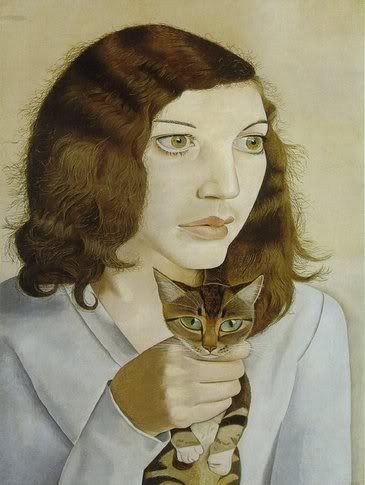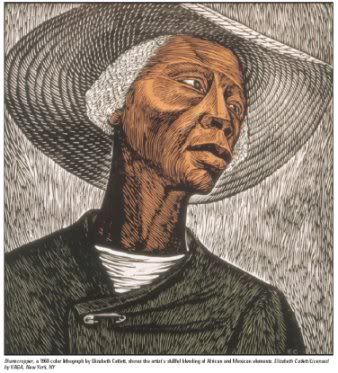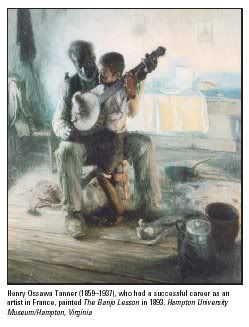Thursday, February 24, 2005
A Secret Society Called Priory
The Templar Revelation as reviewed at CNN.com is a story about great religious conspiracy. The reviewer, however, questions the ability of the writers to back up their claims. Their claims, the writers themselves suggest, "could shatter the foundation of the Christian Church." They rely on Gnostic Gospels, apocryphal writings and other cryptic clues to support their theories.
Although not having seen the book myself the criticism of the reviewer rings credible. After all, if one is to cast doubt on the authenticity of biblical texts by referring to what is contained in apocryphal texts, on what basis can one attest to the authenticity of the apocryphal texts? That being said, I can imagine myself thoroughly enjoying a journey through history on the pages of The Templar Revelation. It is always interesting to read alternative views on what is proclaimed as religious truth.
Just as illogical as it is that the writers suggest the apocrypha are true while the scriptures are false, it seems to me just as illogical to say that the apocrypha are false while the scriptures are true.
Leonardo Squared the Circle--What's It All About?
Good question. While reading the article I had to ask myself "Why?" and "Who cares?" So, I'm no mathematician, which meant all the talk about measurements and formulas made for tedious reading. But I was intrigued by the article's conclusion:
"Leonardo’s secret encoding, within his Vitruvian Man, of his astounding solution to the squaring of the circle, may have merely masked the more explosive beliefs of his heresy."
Now this is titillating. If the subject of art doesn't grab my attention so much, the subject of religion does. The article suggests that the fact that Da Vinci's illustration of the circle being squared in fact masks the equation needed to actually do so, is to disguise a notion more important to Da Vinci, that John the Baptist and not Jesus of Nazareth was the central figure in Christianity. I suppose it is this sort of mystery surrounding Leonardo Da Vinci that has inspired stories like the Da Vinci Code--which I have yet to read.
My interest thus piqued, I have decided to do a Google search on the book, The Templar Revelation, which delves into theories about Da Vinci's "heretical" beliefs.
Wednesday, February 23, 2005
Artist Profile: Lucian Freud
On reading about Lucian Freud I learn that he is a modern realist. He has a preference fot the female nude and he is a grandson of Sigmund Freud--a bit of trivia. His art it seems is highly prized but rarely hung in museums--most pieces hidden in private collections. They fetch prices in the millions. Without seeing a few examples of his art, I can't yet fathom an appreciation or interest.
Here I find links to a collection of his pieces ordered chronologically from 1947-1987. On seeing a few samples I have to say that the art is quite remarkable. It is most certainly realistic while having the unmistakable characteristics of art. More than in a photograph the artist seems to sharpen reality. In the painting below of a man and his surroundings the plant and the carpet are so vivid alongside the man. Despite their vividness none distracts from the other but rather produce a very cohesive image, certainly interesting to look it.

I won't even attempt to describe "Girl With a Kitten," but let the painting speak for itself.

One last detail...the artist is British.
Here I find links to a collection of his pieces ordered chronologically from 1947-1987. On seeing a few samples I have to say that the art is quite remarkable. It is most certainly realistic while having the unmistakable characteristics of art. More than in a photograph the artist seems to sharpen reality. In the painting below of a man and his surroundings the plant and the carpet are so vivid alongside the man. Despite their vividness none distracts from the other but rather produce a very cohesive image, certainly interesting to look it.

I won't even attempt to describe "Girl With a Kitten," but let the painting speak for itself.

One last detail...the artist is British.
Tuesday, February 22, 2005
African American Art
Today finds me going off on a tangent. One of the About.com guides admonishes students on how to properly ask for help with their homework. Good for her (the guide). As a teacher I say these kids need to be put in their place.
Back on track, the reading on African American Art is an excerpt from a soon to be published volume on the subject. It makes a very academic read chronicling the history of black American art from the early years of the republic to the present. Names of numerous artists are dropped and it is generally an interesting and scholarly article, worth a revisit. Fortunately some works of art are portrayed as well, the following being my favorite.


Back on track, the reading on African American Art is an excerpt from a soon to be published volume on the subject. It makes a very academic read chronicling the history of black American art from the early years of the republic to the present. Names of numerous artists are dropped and it is generally an interesting and scholarly article, worth a revisit. Fortunately some works of art are portrayed as well, the following being my favorite.


Monday, February 21, 2005
Art History, José Clemente Orozco
My first lesson brings me to a Mexican artist, of course someone I've never heard of, his work categorized as Social Realism.
Artist Profile: José Clemente Orozco and follow on link.
OK, what did I just read? About the artist's life, especially with regard to his social leanings. He supported the Mexican Revolution--of which I know nothing about. It seems to have occurred during the first half of the 20th century. It seems he was a dedicated revolutionary for which art was his modus operendi. Many place names and titles of his works are mentioned--entering one ear and exiting the other. There was only one painting depicted on site and no direct links to others. I'll save any further research into Orozco, should I become more interested in revolutionary topics.
Sunday, February 20, 2005
Art History
About.com offers browsing of its topics through channels. I start with the first entitled: "Arts and Literature"--which sounds like a nice place to start.
The first "entry" in About.com is Art History--which I will read about tomorrow. I have subscribed to the About This Week Newsleter, which I will add to my chronicle.
Art History (About.com)
Their Story
I began my quest with a prologue but I feel I need a preface as well. Why choose About.com as a modern version of the encyclopedia? In part I believe that About.com offers an edited view to the otherwise untamed and wild, worldwide web. It perhaps will offer a shortcut to sifting through a lot of dead and superfluous links. The web itself is like infinite volumes of encyclopedias whose pages have been ripped out and scattered by the wind. Add to the confusion the pages of a multitude of magazines and newspapers and even countless letters that people have written to each other. In About.com some of the more substantial chunks of the infinite matter of the cyberverse is reviewed and catalogued--as far as I know. The scope is as wide as one might have any need for, but focused in a meaningful and useful way.
So, I start with the Index Page which leads me to my first link:
Our Story (About.com)
The first interesting point I find is that About.com acts as an information resource managed by "a powerful network of 475 Guides -- smart, passionate, accomplished people who are experts in their field." Wow, this is certainly no Google search engine. This is the sort of thing I was expecting.
About.com covers 50,000+ topics! Uh-oh, this may be an endless quest! It includes a "robust library" of almost one million (and growing, I'm sure) pieces of original content. Ok, this is going to be an endless quest. But it seems to be exactly what I was looking for.
A Free Newspaper and a Quest for Intellectual Stimulation
There's a new newspaper in the UAE called 7 Days. I like it because it's free! Well, it's also small and has a bit of local news as well as international stories, and it's ad-free!--unlike the newspapers you have to pay for. Who needs a big ole newspaper everyday when there are other sources of news-- like the Net, TV and radio--and one hardly has time to read much anyway. I had subscriptions in the past and often let newspapers pile up for days or weeks, hardly even opening them--and then feeling guilty about it! Who needs to spend money on a subscription just to make himself feel guilty? (That's something best taken care of with a health club membership!)
Well, this is all beside the point, except for the article in 7-Days today that caught my attention and gave me the idea to embark on a quest of sorts. Part of the quest will be to chronicle my progress at the new endeavor in a blog. I hate to say that it isn't my own idea. It's funny when one reads about someone else's good idea it seems like something so logical and simple that you think, "I should have thought of that!" Then I wonder what new and simple idea can I come up with. There have got to be many more out there. Then a little time passes and I just go on with life, forgetting about the already past moment of "almost inspiration."
This time I won't let the inspiration slip away. The newspaper article was about an Arnold Stephen Jacobs who spent 18 months reading the entire Encyclopaedia Britannica and who also wrote a book about the endeavor, now a best-seller and potential movie project. What a dumb or nerdy idea some might think, but I think it's a wonderful idea. For me it's not a question of collecting trivia. I could care less about trivia, which IS nerdy as far as I'm concerned. What interests me is the intellectual stimulation that might come from such an endeavor.
So, here I shall embark on my own Arnold Stephen Jacobs' type quest. My initial reaction on reading the article was that an encyclopedia seems kind of old fashioned as well as writing a book about the event. Come on Arnold Stephen, this is the 21st century! My quest is thus:
I shall read the entire catalog of About.com posts. Like an encyclopedia the scope of information covered is immensely broad. However, unlike an encyclopedia I believe there is less trivia and more in depth treatment of topics, not to mention being more up to date. Furthermore, being an Internet project About.com is likely to provide links and include contributions from a much wider scope of thinkers, writers and scholars, as well as from ordinary folk who have meaningful things to say.
So, without further ado, I shall embark on my quest to read all of About.com and chronicle the endeavor in a blog. Perhaps I can invite others to join me. This would add another twist to Arnold Stephen Jacobs' project. I shall have to work out along the way how many links I will pursue. My initial thought is that I should limit myself to About.com content, but exactly what that is, I don't know, and it might be essential to follow links off-site to attain the goal of intellectual stimulation I seek.
This then concludes the prologue to my chronicle, upon which I shall start with the index page of About.com
